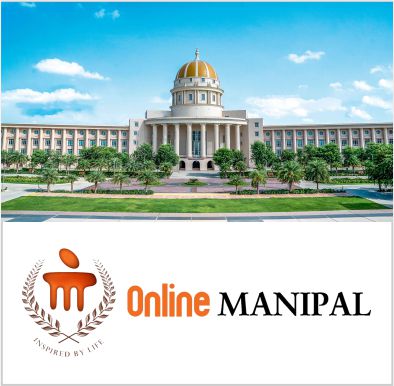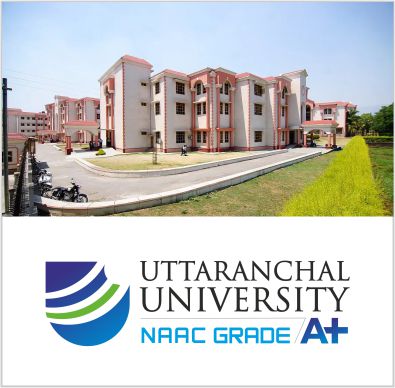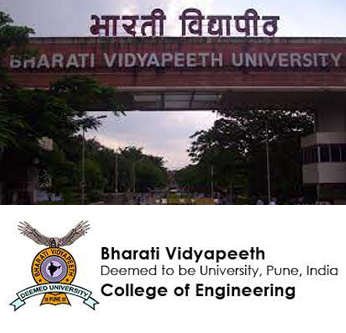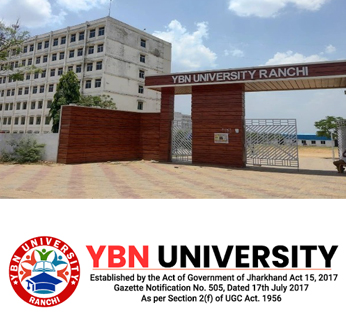Degree – Bachelor
Full Form – Bachelor of Library and Information Science
Duration – 1 Years
Eligibility – Bachelor Degree
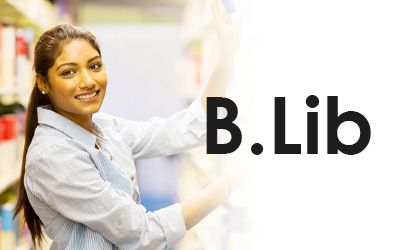
A title
Image Box text
Bachelor of Library and Information Science
Bachelor in Library and Information Science (B.Lib.I.Sc.) is a one year undergraduate course that teaches the candidates about library management and administration. The course is generally divided into two semesters. Bachelor in Library and Information Science (B.Lib.I.Sc.) mainly deals with the preservation and maintenance of libraries.
To stand eligible for the B.Lib.I.Sc. course, the candidates need to complete their Bachelor’s degree in any discipline with at least 50-55% marks. Some colleges also require the students to sit for an entrance examination before they qualify for admission to that particular college.
The Bachelor of Library and Information Science [B.Lib.I.Sc] students earn an average salary of INR 1.2 LPA to INR 6 LPA per annum. Some of the common job profiles include Law Librarian, Deputy Librarian, Library Assistant, etc.
This course is pursued by candidates who have interest in working as a librarian. The aspirants of this course are often bibliophiles and spend a lot of time gaining knowledge through the vast array of books and magazines available to them.
What is Bachelor of Library and Information Science?
B.Lib.I.Sc course is taught across various reputed colleges like Jadavpur University, Panjab University, Chandigarh University, Aligarh Muslim University, etc.
The B.Lib.I.Sc syllabus consists of different subjects such as Library and Society, Library cataloging (Theory and practical), library classification, information sources and services, etc.
The average tuition fee of the Bachelor of Library and Information Science [B.Lib.I.Sc] course is INR 2,000 to INR 50,000. The Bachelor of Library and Information Science [B.Lib.I.Sc] graduates are hired in various sectors across the country. Some of the students also pursue higher studies.
Bachelor of Library and Information Science Eligibility
Every college or university has a different set of eligibility criteria that need to be fulfilled by the interested candidates. Here, we have mentioned the important eligibility criteria for the Bachelor of Library and Information Science [B.Lib.I.Sc] course:
- The candidate must complete his graduation in any discipline from a recognized university.
- The candidates must have a minimum of 50-55% marks in his/her graduation/
- The candidates will also have to clear the admission criteria for the particular college in which they are willing to take admission
- Some of the colleges/Universities conduct their own entrance exam which must be cleared by the aspirants.
Key Highlights of BLIB Course

Flexible Learning Mode:
BLIB Course gives students choices in how they learn. They can pick different study times, like online classes, weekends, or part-time sessions, to fit their studies around their other commitments.

Updated Course Curriculum:
Curriculum stays current with what’s happening in industries today. It’s regularly updated so that students learn things that are relevant and useful in real life.

Write the exam in your chosen language:

Doubt clearing session:
Your One Stop Solutions
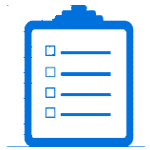
Fill The Basic Details
Get one step closer to your dream career with the right course.

Select Your Course
Help us know you better with basic information & few questions.

Explore Your Option
Don't limit yourself, explore top universities with our specially designed list

Compare & Get The Best
Compare top universities on different aspects like Student rating, Govt Approvals.
Admission Process
(How to Apply?)

Submit Form
Fill in and submit your application form online.

Expert’s Counseling
You will receive a call from our expert counselor

Choose University
Select the course & university according to your interest

Online Payment
You need to make a smooth online fee submission

Admission Confirmation
You will get an admission confirmation on your Email
Let's Clear up some doubts ?
Technical requirements may vary depending on the course and learning platform, but typically include a reliable internet connection, a computer or mobile device, and compatible software or web browsers. Specific requirements will be outlined in the course description or syllabus.
Yes, one of the advantages of online courses is that course materials are often accessible 24/7, allowing students to study at their own pace and convenience.
Online courses typically offer communication tools such as discussion forums, email, messaging systems, and live chat sessions where students can interact with instructors and peers. Instructions for accessing these communication channels will be provided within the course platform.
Yes, online courses typically have deadlines for submitting assignments, participating in discussions, and completing exams or quizzes. It's important to review the course syllabus or schedule to stay informed about important dates and deadlines.
It depends on the course and the institution offering it. Some online courses offer certificates of completion or professional development credits, while others may be eligible for transfer credit at colleges or universities. Check with the course provider or your academic institution for details on credit options.
Most online course platforms offer technical support services to help students troubleshoot issues with accessing course materials, navigating the platform, or using specific features. Look for contact information or help resources within the course platform for assistance.






